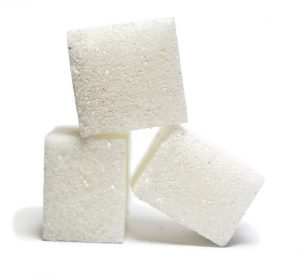 There’s been a fair bit of backlash against the “clean eating” movement recently… With prime time documentaries, media headlines and prominent bloggers all speaking out against the so called ‘clean eaters.’
There’s been a fair bit of backlash against the “clean eating” movement recently… With prime time documentaries, media headlines and prominent bloggers all speaking out against the so called ‘clean eaters.’
I thought it was important to give some much needed balance to the topic.
The supposed clean eating movement was started several years ago by bloggers such as Ella Mills and The Hemsley sisters. These foodies propose a diet without gluten, dairy and sugar… with lots of beautiful images, tempting recipes and healthy eating tips to go alongside their blogs.
I follow a lot of their recipes, and I think they have some brilliant ideas. Yet the issue hurled against these bloggers is that they have no qualifications… prescribing a strict ‘one size fits all’ approach for everyone, with many food groups excluded.
This is perhaps where the backlash is coming from, with medical professionals in particular being rather suspicious of their claims.
As a professional, I believe that balance and moderation are absolutely key when it comes to our diet. For the majority of the population, we don’t need to demonise whole food groups (apart from maybe sugar… but even a little bit of sugar as a treat now and then won’t do anyone any harm).
As a Nutritional Therapist, I do often advise people to reduce wheat, gluten and dairy in their diet, and sometimes exclude it… but only when their symptoms warrant it.
It seems to me that “clean eating” has become the latest healthy living villain.
The fact is thaOmega-3 fatty acids (or omega 3 polyunsaturated fats) are incredibly important for men, women, and children, with scientific studies showing again and again that they deliver all sorts of powerful health gains for your body and brain.t the majority of the population could do with a dose of healthier eating.
Why no backlash against the myriad of slimming groups ran by people with no qualifications, often who are very overweight themselves? Many of these diets propose unhealthy packaged foods, such as cereal bars, cuppa soups and pasta pots which are loaded with sugar and artificial ingredients. Why isn’t there a prime time documentary about these groups… and how so many dieters on their programmes fail?
 The average Briton now consumes over 30 teaspoons of sugar per day… not good for soaring obesity levels and type 2 diabetes. And if you think about our typical British diet… cereal or toast for breakfast, sandwich for lunch and pasta for tea, with several biscuits in between. Not particularly inspiring or healthy!
The average Briton now consumes over 30 teaspoons of sugar per day… not good for soaring obesity levels and type 2 diabetes. And if you think about our typical British diet… cereal or toast for breakfast, sandwich for lunch and pasta for tea, with several biscuits in between. Not particularly inspiring or healthy!
And very little fruit, veg or healthy fats, and lots of wheat.
In my experience of working with over 1000 clients, many people do much better on a diet lower in sugar, gluten and not so much dairy. These bloggers are speaking a lot of truth when they talk about how sugar can wreak havoc on the immune system, contribute to digestive issues and put us into a more inflammatory state.
And we know from years of research and professional studies that inflammation is an underlying cause of so many health issues, from arthritis to heart disease.
Whilst I do agree that we have to be careful listening to the advice of people who are not properly qualified, I think these food bloggers have a good dose of common sense. After all, aren’t they simply proposing a diet based on real food, rather than packaged food?
We would all do better eating food that our grandparents or even our caveman ancestors would recognise. That’s food based on real whole ingredients, rather than packages and microwave meals.
Unfortunately, we’ve ended up in a world where food just doesn’t take enough priority. What these bloggers are trying to say is that the right food can make us healthier. Far too many people seem to have forgotten this vital relationship.
Food and drink gives us life and it fuels everything that we are – physically, emotionally and mentally. Isn’t that worth a little clean thinking?
Like this? You’ll love: The Ultimate Guide to Good and Bad Breakfasts